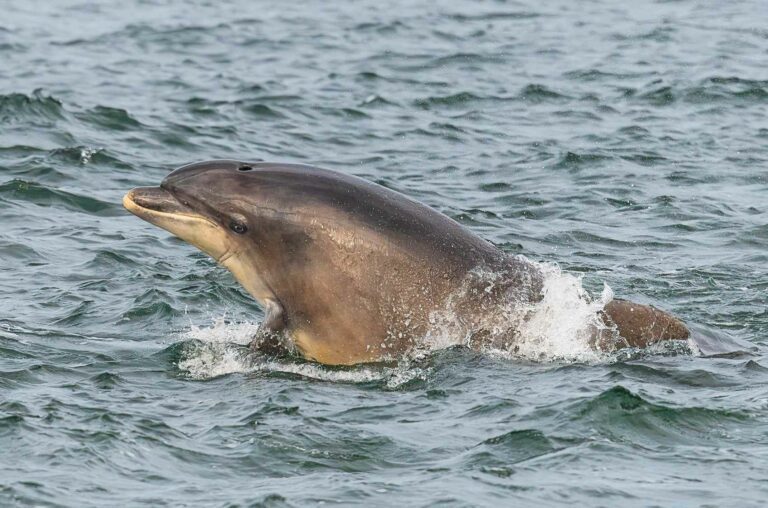The brains of three species of stranded dolphins have been found to show classic markers of Alzheimer’s – the first time the disease has been detected in non-humans. The discovery might explain why dolphins, porpoises and whales are regularly stranded around UK coasts.
The finding by Scottish scientific researchers comes as the result of what they say has been the most extensive study yet into dementia in toothed whales.
Also read: ‘Incoherent’ UK law failing whales & dolphins
The scientists from the Universities of Glasgow, St Andrews and Edinburgh and the Moredun Research Institute studied the brains of 22 aged toothed whales (odontocetes) that had stranded in Scottish coastal waters. Marine Scotland and DEFRA fund post mortem examinations of stranded cetaceans, pinnipeds and marine turtles.
The species were Risso’s, white-beaked and bottlenose dolphins, harbour porpoises and long-finned pilot whales, and four animals of three of the species displayed some of the brain changes associated with Alzheimer’s disease in humans.
The findings could explain at least some live-stranding events, because they support the “sick-leader” theory, say the researchers. This suggests that an otherwise healthy pod of animals find themselves in dangerously shallow waters after following what might be an ageing leader that has become confused or lost.
Stranded toothed whales are often found in groups or pods in shallow waters and sometimes on beaches. Rescuers are sometimes able to move them to the safety of deeper waters, but many animals die every year in such events.
Brain changes
Alzheimer’s disease in humans is marked by the formation of amyloid-beta plaques in the brain, and these plaques showed up in all five species, but in the affected animals they crucially appeared alongside hyperphosphorylated tau in neurons, another dementia-related pathology.
“While it is tempting at this stage to speculate that the presence of these brain lesions in odontocetes indicates that they may also suffer with the cognitive deficits associated with human Alzheimer’s disease, more research must be done to better understand what is happening to these animals,” said lead researcher Dr Mark Dagleish from the University of Glasgow, while describing the discovery as “significant”.
“I have always been interested in answering the question: do only humans get dementia?” said co-author Prof Frank Gunn-Moore from the University of St Andrews. “Our findings answer this question, as it shows potential dementia-associated pathology is indeed not just seen in human patients.”
“We were fascinated to see brain changes in aged dolphins similar to those in human ageing and Alzheimer’s disease,” added Prof Tara Spires-Jones of the University of Edinburgh. “Whether these pathological changes contribute to these animals stranding is an interesting and important question for future work.” The study is published in the European Journal of Neuroscience.
Also on Divernet: Dolphins For Avatar – What Was JC Thinking?, Dolphins Recognise Personal Whistles – And Urine, Captured On Camera: How Dolphins Hunt, Dolphins Guard Russian Warships Against Divers

